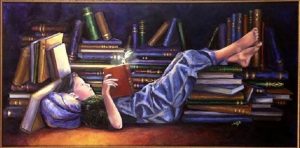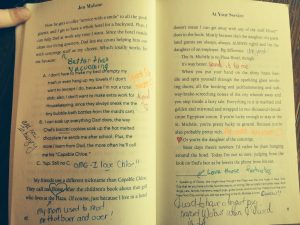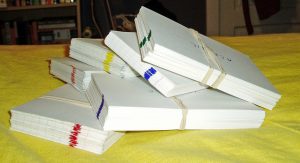 There are many ways in which alcohol can affect a young persons brain. At this day in age, many young adults/high school students experience the effects of alcohol but many don’t realize what goes on in the brain. A creation of a virtual reality app showing how alcohol affects the brain would help many young adults get a better understanding on this subject. This app would be targeted towards young adults, their parents, or even teachers and counselors who can reach out to individuals if they believe this app would be of any interest or help to them. In this app, the individual will get to see themselves in a sober setting and experience what that is like, and then move towards a not so sober experience. To begin with, they will be able to pick a character (male or female). This character would carry on daily tasks as a sober person, while later on, those tasks will be performed in a more difficult setting. As that setting occurs, the young adult will be able to go through the brain and see what occurs. While inside of the brain, they will be able to study specific parts of the brain and read about why or how that part of the brain is affected. Things such as brain cells dying off, or certain parts of the brain that may become damaged. The purpose of this is to show that once brain cells die, they cannot be brought back. Once a certain part of the brain is damaged, it may not become fully repaired. The app would increase on level of difficulty. Doing tasks while the screen shows a “wobbly” setting will become much more difficult. The individual will get to experience what it’s like performing every day tasks while being “drunk”. According to the U.S. Department of Health and Human Services, the symptoms one may face from drinking alcohol would be difficulty walking, blurred vision, slurred speech, slowed reaction time and even impaired memory. The app would depict all of those symptoms through the screen. This app would be very important to high school students or even students younger than that so they know beforehand what can happen when alcohol is consumed at a young age when the brain is not yet fully developed.
There are many ways in which alcohol can affect a young persons brain. At this day in age, many young adults/high school students experience the effects of alcohol but many don’t realize what goes on in the brain. A creation of a virtual reality app showing how alcohol affects the brain would help many young adults get a better understanding on this subject. This app would be targeted towards young adults, their parents, or even teachers and counselors who can reach out to individuals if they believe this app would be of any interest or help to them. In this app, the individual will get to see themselves in a sober setting and experience what that is like, and then move towards a not so sober experience. To begin with, they will be able to pick a character (male or female). This character would carry on daily tasks as a sober person, while later on, those tasks will be performed in a more difficult setting. As that setting occurs, the young adult will be able to go through the brain and see what occurs. While inside of the brain, they will be able to study specific parts of the brain and read about why or how that part of the brain is affected. Things such as brain cells dying off, or certain parts of the brain that may become damaged. The purpose of this is to show that once brain cells die, they cannot be brought back. Once a certain part of the brain is damaged, it may not become fully repaired. The app would increase on level of difficulty. Doing tasks while the screen shows a “wobbly” setting will become much more difficult. The individual will get to experience what it’s like performing every day tasks while being “drunk”. According to the U.S. Department of Health and Human Services, the symptoms one may face from drinking alcohol would be difficulty walking, blurred vision, slurred speech, slowed reaction time and even impaired memory. The app would depict all of those symptoms through the screen. This app would be very important to high school students or even students younger than that so they know beforehand what can happen when alcohol is consumed at a young age when the brain is not yet fully developed.
Author: Marina Fulcher
Urdea
![]()
I think this is a good avatar to have as a gunter because she has that tough and angry look on her face. I would give her the name Urdea because it means Goddess of Destruction. The background represents pixels and it makes her look like she’s in a digital world. I think a lot of other gunters would probably be afraid of her.
In scene 8, the setting is in Iris’s bedroom. Her and Woodnut are dancing around in the room. Papa ends up coming into the room telling Iris that she forgot about their afternoon together. Papa was not very happy about Woodnut spending so much time with Iris. As the play goes on, Papa has a conversation with Woodnut about it, but Woodnut cant seem to understand why Papa will not allow him to get close to Iris. He ends up handing Woodnut an axe.
Why do you think Papa is not okay with close relationships in the realm?
Is Reading Online Really Helpful?

Everyone has different views on the question, “Is reading online helpful or harmful?,” but no one is ever really sure of the true answer. Technology may be becoming a huge part of our lives, but it still creates a huge distraction in our every day routine. Reading online has several benefits, but the drawbacks tend to outweigh the benefits. Online reading can result in a lack of concentration, difficulty comprehending, and an inability to fully create images in your mind, as you would when reading an actual book.
To begin with, it may be agreeable that technology plays a very big role in our lives. In the article “Is Google Making Us Stupid,” Nicholas Carr states “Never has a communications system played so many roles in our lives—or exerted such broad influence over our thoughts—as the internet does today” (Carr). As his statement may be true, technology can also be extremely distracting. The more we continue to use technology for reading online, the harder it is to stay focused. (Carr). As for me, when I read online, I find a lot of things such as ads that take my attention away from a piece of writing. If the ad is interesting, I will click on it and I am automatically on another page, and it can be difficult to get back to what I was reading. I could even spend hours looking through the ad I had just clicked on. In contrast, an actual book is much easier to follow and keeps me focused for a long period of time. A book is more clearly defined than an electronic screen. As Ferris Jabr explains, “A reader can focus on a single page of a paper book without losing sight of the whole text: one can see where the book begins and ends and where one page is in relation to those borders.” Paper books also give us an opportunity to use the text in any way we want such as highlighting and making notes in the margins (Jabr), which can be difficult to do with an online piece of text.

Secondly, reading online can show a result of difficulty comprehending. Even though technology is all around us and is becoming second nature (Carr), it continues to show that certain individuals still have comprehension issues based on online reading. In an experiment conducted by Erik Wästlund of Karlstad University in Sweden, 72 volunteers completed a Swedish-language reading-comprehension test. This test was a duration of 30 minutes and consisted of multiple choice questions and readings that were at most 1,000 words. As a result, Ferris Jabr states “People who took the test on a computer scored lower and reported higher levels of stress and tiredness than people who completed it on paper.” Wästlund conducted a number of studies that showed similar results. Those who had to scroll through the continuous text did not do so well on the attention and working-memory tests. Scrolling drains a lot more energy than turning a page or clicking on a page. Other researchers have come to the conclusion that people comprehend less when they read on a screen because reading on a screen is much more physically and mentally draining than reading on paper (Jabr). I agree that on screen reading is draining both physically and mentally because I experience it all the time. After reading a long article on a screen, my eyes begin to get tired and I no longer want to read the article. If the reading is done on paper, I can read for a very long period of time without experiencing any effects physically or mentally.
Lastly, when reading is done online, because of distraction, it can be difficult to fully create images in the mind as it would be done when reading a book. In the article “The Deep Space of Digital Reading” by Paul La Farge, he talks about an interactive novel called Pry. Along with text, this novel uses “video clips to expose its protagonist’s memories”. While interaction with a novel is a great idea, it still poses a big distraction. It can be very easy to lose sight of certain information. When reading long text online, it does not appear as a book would. It would be difficult to go back into the text to find information because the words may appear jumbled and confusing. With a book, its easy for the brain to remember where on a specific page that information was read (Jabr). In contrast to a website, losing sight of where certain information is on a webpage can be very easy to do by simply scrolling down the page.
There is no telling where reading online will take us in the future. I believe everyone has their own methods of how they understand writing and what they use to understand it. Online reading will most likely continue to be a huge part of our lives because technology, like our phones, is a huge part of our every day. As we continue to rely on technology to help us understand the world, “our own intelligence flattens into artificial intelligence” (Carr). When it comes to reading, paper and ink will always have the advantage.
Works Cited:
Carr, Nicholas. “Is Google Making Us Stupid?” The Atlantic. Atlantic Media Company, July 2008.Web. 26 Feb. 2017
Jabr, Ferris. “The Reading Brain in the Digital Age: The Science of Paper versus Screens.” Scientific American. N.p., 09 Apr. 2013. Web. 26 Feb. 2017.
My Transition
Normally, most who live in the U.S speak, read, and write in English their whole life, but growing up, English has not always been the language I spoke, wrote, and read. Throughout my life, I have learned the Russian language, as well as English. It has been a very long and difficult journey of learning especially the English language. Coming to the U.S. and having no knowledge, to then becoming fluent within a year has shown a lot of work and dedication on my part. I am as fluent in the English language as I can possibly be, and I carry no accent. But as for Russian, I no longer have as much knowledge as I used to due to getting so used to reading and writing in English. My vocabulary grows each and every day. To this day, I continue to expand my vocabulary and improve on my reading and writing skills.
For the first nine years of my life, I grew up in Russia in a small town by the name of Pskov. I lived with only my mother and three of my siblings. My father passed away when I was about a month old so getting by things was difficult at times. The town I lived in was financially poor. It was hard to find money to have an education, which is why I was never afforded the opportunity to attend school. My mother did not have a job, so she was basically getting money from others to support her four children. The way I learned my original language was by picking it up from others, especially my mother. I don’t remember ever being in a classroom until I was taken into the orphanage, where I finally began reading Russian books and writing my own name on paper. In the orphanage was where the transition from Russian to English began. To begin with, we would sing songs in English to practice pronunciation. From pronunciation, it progressed to trying to write and read but I just couldn’t for the simple fact that Russian was too fresh and English was difficult to remember. Putting that with the fact that I had never attended school made it even harder.
When I reached the age of nine, I was adopted and ended up moving to the United States. After moving to the U.S., I began going to elementary school to learn how to speak, read and write in English. I still to this day remember the name of the teacher that taught me how to speak, read and write, and it is a name I will never forget. Mr. Fulton. This is a name I will never forget because it was the most important event of my life. It was a huge stepping stone. It is very true when people say English is the hardest language. I remember it being extremely difficult to grasp the different meanings of all kinds of different words. It was difficult to begin reading and writing in a language I did not recognize. As months passed, I began trying to put words together in speaking, as well as on paper by using several flashcards. These flashcards would have certain words written in Russian, and on the back of the card would be the translation. This helped me recognize what the word was and what it looked like in the English language. I spent hours on end studying and practicing the English language in school, as well as at home. I remember it being extremely difficult to communicate with my parents at home because they spoke English, and I did not. They would help me learn by labeling certain objects in the house and I would walk around practicing to read and recognize the words. This helped me a lot because I could learn English at a much quicker pace. Learning at a quick pace also comes along with craving to communicate with others. I wanted to have conversations with others but I just could not because my English was not proficient enough. I began paying close attention to how others spoke around me and I started to pick up on it. I remember a specific incident when a student asked me to speak in English. At that point, I could understand what others were saying to me but at the same time, I was still learning how to communicate back. So I said the one word I knew best, that word “hello”. Others were so shocked I spoke in English and I can still, to this day, remember their exact reaction. The reaction of jaws dropping and wide eyes. The process of communication became easier and easier as time went on.

As more time passed, words turned into sentences and sentences turned into paragraphs. I began writing papers for classes and each grade on each paper went up each time. That’s when I knew my hard work was paying off. It took me about a year and a half to fully learn the English language. I continued going to classes that helped me become a better reader and writer, one specific class was English for Speakers of Other Languages, ESOL for short. ESOL helps foreign students learn the English language. It was a class I attended every single day and was tested on speaking, reading, and writing. Because I was not able to read and write at a proficient level, I was held back another year in elementary school. I have always been behind other students. The number one subject I am behind on and will always be behind on is English. Though I have learned how to read and write correctly, I still struggle at times on difficult assignments.

My whole life has been a long and difficult journey. Going from knowing no English at all, to becoming fluent within a year is an amazing story to me, as well as others around me. I am now able to have an education, which I never thought I would have. And now that I know the English language fluently, I am able to have a bright future and pursue a career that will make me successful in the long run. The journey that I have been through will open up new opportunities for me in my future career as a doctor.